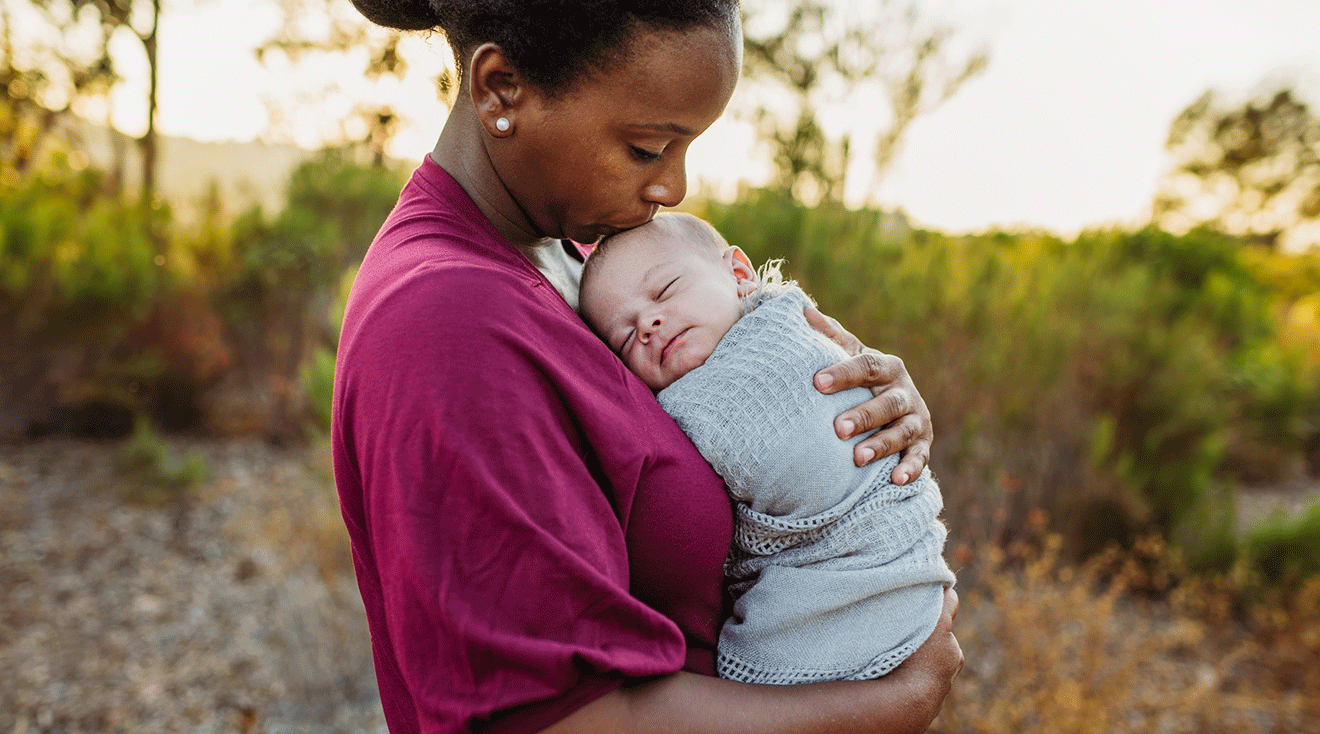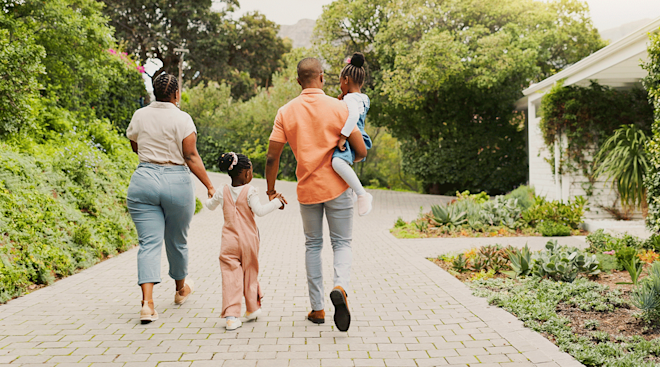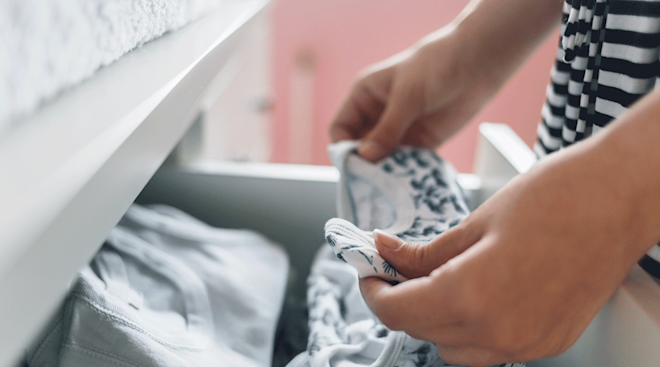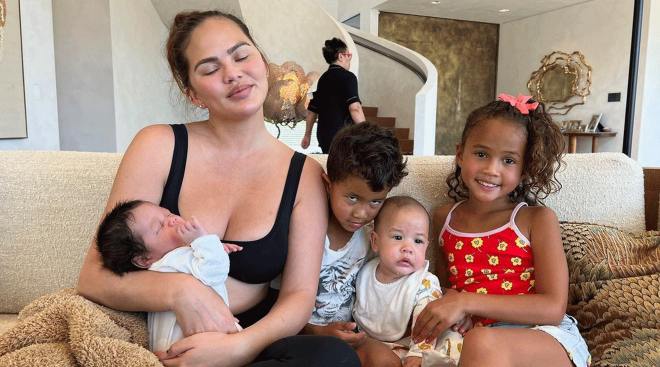8 Things New Parents Can Do for an Easier Postpartum Period
Baby’s arrival brings immense joy, but it also brings tons of new responsibility that can feel foreign and overwhelming. You of course want to ensure baby’s wellbeing, and the anxiety of caring for a newborn can lead to worrying over every detail. As a new parent, it’s normal to be afraid of doing the wrong thing—but sometimes it’s important to take a step back and look at the bigger picture. With all the time spent stressing about baby, you might be forgetting about another crucial aspect of that “fourth trimester”: your own recovery from childbirth. Here are some steps new parents can take to make the postpartum period just a little bit easier.
Yes, you’ve got a brand-new, very small and vulnerable person whose health you’ve got to watch out for, but you’re also recovering from childbirth, which is no walk in the park (more like a trek up Mount Everest). And if you had birth complications, tearing or a c-section, you may have even more to recover from. During those first few weeks with baby, it’s important to get extra rest, drink lots of water, eat nutritious food (with plenty of fiber) and give yourself TLC as often as you can. It’s hard to fight the urge to do it all and not put your self-care last, but try to take it easy and make time to take care of yourself.
This is the time in your life when you really need a nap and some good old-fashioned nourishment and hydration. So if someone offers to watch baby, do a load of laundry, make you a sandwich and get you a drink of water, take them up on it, especially if they’re within the circle of people you trust. In your pre-baby life, you might have chalked such offers up to people’s good manners and politely turned them down, but a baby’s arrival into your home changes everything. Release any urge to “do it all” and accept offers of help—and ask for help when you need it.
Even with seasonal concerns like allergies, cold, flu and COVID-19, experts say a walk around the block is not only okay, it’s beneficial (with some basic precautions). If you’re feeling like you need a little pick me, try heading outdoors and getting some fresh air with baby. Right now, it may seem intimidating to take a shower, put on real clothes, pack up the diaper bag (oh yeah, and baby too) and head out the door, but it can really help with boosting your mood. “Nature has a grounding effect,” explains wellness and mindfulness expert Josephine Alturi. “Even if all you can muster is just stepping outside of your home, it’s still helpful to step barefoot on the ground, observe your connection and know that you’re being supported.” Being in nature can help shift our perspective to the bigger picture, offering the opportunity to reset and find ways to be more present and grateful in daily life, she adds.
Birth plans can be a helpful way to set and share intentions for what your delivery experience might look like—but childbirth doesn’t always go to plan. Maybe you wanted to go drug-free but then decided to get an epidural during labor. Or maybe you really wanted a water birth but had to get a c-section. It might not have happened the way you wanted it, but you and baby made it through childbirth and are now a family, and that’s what’s really important. If you’re having trouble moving forward or are grappling with birth trauma, reach out to a qualified mental health professional who can help.
Breastfeeding can be a lot harder than some of us ever expected. In fact, one study suggests that only a third of women who want to breastfeed do it for as long as they’d originally intended. If breastfeeding is your goal but you’re running into challenges, get help from a lactation consultant, baby’s pediatrician or even an experienced friend or relative you feel comfortable with. Getting to the root of problems right away can keep you from getting frustrated, and getting back on track sooner rather than later can help increase your chances of success.
A parent’s love for their child is indescribable, and they’re constantly trying to make sure their little ones are happy, healthy and thriving. New parents may find themselves asking questions like: “Am I giving baby enough stimulation?” “Too much stimulation?” “Should I have gotten the stroller that can face baby toward me?” “What about that soft baby carrier?” You name it and a new parent has likely worried about it. But other than legitimate safety and health concerns, you can probably let these smaller worries go. “It’s tough to be a new parent and not have the prior experience to know what’s a big deal and what isn’t,” Alturi says. “But holding on to all the little worries can build up and add to mental, emotional and physical strain.” Her advice? In situations without a clear major safety or health concern, ask yourself if this is something you’ll still be fretting over in a few minutes, an hour or later on in the day. “If it feels like it’s still a big deal to you but you can’t handle the weight of this stressor, see if you can ask someone else to help you out so you don’t feel so alone and helpless,” she adds. Most parents learn by the time baby number two rolls around that they should stress less over the small stuff—or they just don’t have the time to stress as much and they realize it’s okay.
Everyone has their own parenting style and will do things differently. And as a new parent, you might find yourself getting tons of advice (solicited and unsolicited). While it’s all likely coming from a good place, if you think the guidance doesn’t seem right, then it probably isn’t. It doesn’t matter if you offend someone or if that person is supposed to know better than you—you’re your child’s parent. Read up on infant care and baby safety, and trust your instincts.
Every child is different and will tackle milestones at their own pace. Your friend’s baby might be crawling and cruising while your little one is still figuring out how to roll back to their stomach—and that’s totally okay. If baby’s pediatrician says your child is progressing normally, that’s all that matters. It’s not worth comparing baby’s development to anyone else’s.
The postpartum period can feel like a rollercoaster. “It can get overwhelming to suddenly have someone who needs your constant attention,” Alturi says. “This newborn phase gets heightened by lack of sleep, the uncertainty of the meaning of every little cry and the unfamiliarity of this new chapter of your life.” While it may be challenging at first, know you’re doing an amazing job, and it will get easier with each passing day.
About the expert:
Josephine Alturi is an expert in meditation and mindfulness, as well as a fertility and parenting coach. She’s a mom to seven and created her family through in-vitro fertilization, international adoption and surrogacy. She uses this personal experience to inform her work. A graduate of the University of Chicago, Alturi is also the host of the podcast “Responding to Life: Talking Health, Fertility, & Parenthood,” as well as the author of Mindfulness Journal for Parents and 5 Minute Mindfulness for Pregnancy.
Please note: The Bump and the materials and information it contains are not intended to, and do not constitute, medical or other health advice or diagnosis and should not be used as such. You should always consult with a qualified physician or health professional about your specific circumstances.
Plus, more from The Bump:
Navigate forward to interact with the calendar and select a date. Press the question mark key to get the keyboard shortcuts for changing dates.




















































